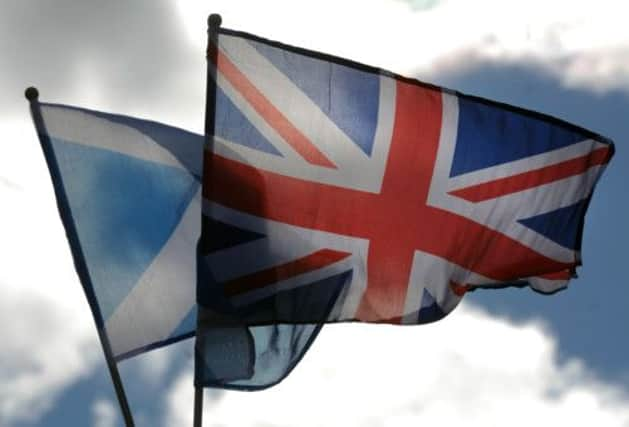Andrew Wilson: Politics of past sings same old song


The grating harmony of these twin forces produces a powerful wall of noise directed at the ears and hearts of the Scottish electorate. Last week it almost reached its crescendo of “Can’t”.
Shouting and anger resounded as the Scottish Government launched its 670-page blueprint in white for the way independence will work should the people of Scotland choose to join the 200 or so other independent countries on this wondrous planet of ours.
Advertisement
Hide AdAdvertisement
Hide AdAbove the detail of it all stand three incontrovertible realities that should anchor all of our thinking on this question as we determine how we might vote:
First, that Scotland can do this – no-one doubts that anymore, not even the Tories (well not in public).
Second, that we will commence our journey and make our choice from an economic starting point that sees us richer, in the wealth we create per head, than any other country that became independent in history – think on that when you feel Scottish self-doubt creeping in.
And finally, and ironically least important given everything, we will make our choice with greater clarity, certainty and detail about how the process will work than any other country ever did. It is the Scottish way.
Minutes after the document was launched, the leader of the No campaign, Alistair Darling, rushed to condemn it in “anger”. He either read very quickly or would have said what he said irrespective of the content. Not surprising, however, given that the always well positioned Spectator magazine had reported weeks earlier that the UK government had already produced its response to a Scottish Government document it hadn’t seen. This form of politics is not good enough anymore.
Once again, let me make clear my personal admiration and regard for Alistair Darling as an individual and political figure. He is a person of substance. He would be close to the top of my list for leaders to recruit to Scotland’s corner in the event of a successful Yes vote. Who better than he to help negotiate the content of a joint currency union with the rest of the UK? After all, he did say that it was “logical and desirable” last year.
However, and I do understand why this is the case given the demands of the 24-hour media, I do find it somewhat absurd and very “old politics” that it is still deemed somehow sustainable to condemn first and read later.
In my estimation the majority of people want to take this vote seriously and to have their vote, opinion and minds taken seriously. It is obvious that good people can disagree on the outcome, so why must the debate be dominated by such puerile, negative old politics?
Advertisement
Hide AdAdvertisement
Hide AdOne of the many sub-plots in the main event will be whether this old politics of Blairite Nineties spin that dominates “No” can defeat the more modern positive engagement of “Yes”.
Once upon a time the population depended entirely on the interpretation of the media, its moguls and the words of wise statesmen and women. But only the most reclusive hermit would have missed the reality that in the last few years the idea that our establishment leaders have a monopoly on wisdom and competence has been utterly and completely destroyed by one crisis after another.
The common denominator underpinning them all is the cold wind of transparency exposing the reality of fallibility and frailty to which we need doff our caps no more.
There was no better example last week than the almost comedic intervention of Sir John Major lecturing the Scottish electorate he once governed without mandate. The last time he was in power he precipitated home rule – I think we should hear more from him.
His words were tired echoes from a past we never voted for and his attacks led off on Scottish Government currency policy. This from the man whose government destroyed his party’s reputation for economic competence in one afternoon in the greatest currency policy debacle in decades: Black Wednesday in 1992.
The common denominator of all the attacks, smears and fears is the politics of “can’t”. Not that Scotland “shouldn’t” but that we “couldn’t”.
We are asked to believe that we will be kicked out of Europe, denied the sterling currency we have shared for centuries and forced to erect borders where there need be none.
The one positive argument I heard for the Union all week came from the ever civilised and lovely Annabel Goldie on BBC Question Time: an impassioned plea for a Union she believed served her country well and was worth getting governments we didn’t vote for. I don’t agree but she put her case well and with dignity. But hers was a wren’s song in the gale of “can’t”.
Advertisement
Hide AdAdvertisement
Hide AdWhether the Scottish electorate are willing to cower in the face of attacks from a discredited establishment deploying outmoded Blairite political tactics could be the determining factor in this choice. My belief is that we will look forward to tomorrow and let go of yesterday. We should, because we can. «
Twitter: @AndrewWilsonAJW